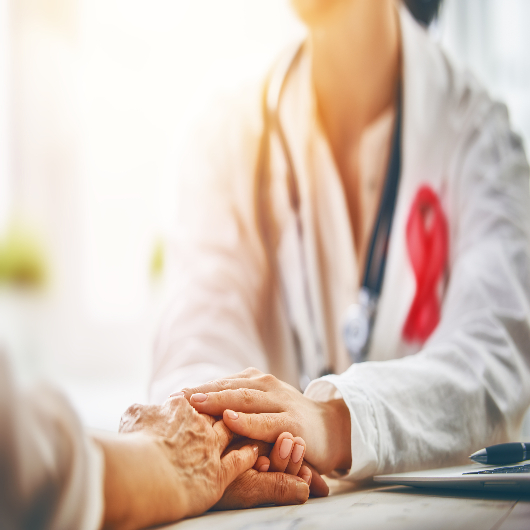Breast Reconstructive Surgery Recovery: What’s it Like?

August 22, 2023
A breast cancer diagnosis is frightening, and treatments can change your body in drastic ways, leaving you feeling vulnerable and unlike yourself. However, breast reconstruction surgery procedures that can help you restore your self-image and gain back your physical and emotional well-being.
“Everybody’s goal with breast reconstruction surgery is different,” says Alyssa Golas, M.D., FACS, director of Plastic and Reconstructive Surgery at JFK University Medical Center.
Dr. Golas breaks down what breast reconstructive surgery is like and what to expect from recovery.
The Breast Reconstruction Process
While each person’s experience and process will be different depending on their circumstances and how the breast cancer needs to be removed, Dr. Golas notes these general steps to the reconstruction process:
- Your breast surgeon will refer you to a plastic surgeon with an idea of what your cancer removal surgery will involve. This will allow the reconstructive team to develop a reconstruction plan that fits your circumstances.
- You will consult with the reconstruction team to understand your specific reconstruction process and what you can expect.
- In ideal circumstances, your breast reconstruction will begin the same day as your cancer is removed.
“A lot of breast cancer reconstructions are not single procedures,” Dr. Golas notes. “Often patients will need more than one procedure to reach their final outcome.”
What to Expect After Surgery
Everyone’s post-op will be different depending on the procedure that was performed, but generally Dr. Golas says you can expect the following:
- You should be able to shower after two to three days.
- You may have drains in place for a couple of weeks.
- You will need prescription pain medications for a couple of days, then only at night for a couple of days following that. After that, over-the-counter pain relievers should be sufficient.
- You must avoid heavy-lifting, swimming and strenuous exercise for a month after surgery.
- You should expect follow-ups to either check progress or prepare for the next stage of the reconstruction.
- You may also have other treatments, such as radiation therapy or chemotherapy, after your initial cancer removal surgery.
- Expect to be tired for six weeks or more.
- You likely will experience emotional challenges, so it’s important to have a support system of family and friends in place that you can turn to.
Be Prepared
While this process can be overwhelming, there are a few things that Dr. Golas says you can do to set yourself up for better outcomes:
- Quit smoking.
- Eat a healthy diet.
- Control comorbidities such as diabetes and blood pressure.
- Coordinate with family and friends to ensure you receive the support you need.
- Understand that this is a process.
“This journey may seem long and hard, but it is an extremely helpful way to get yourself back after a cancer diagnosis and treatment,” Dr. Golas says. “The ultimate goal is for people to feel comfortable in their body.”
Next Steps & Resources:
- Meet our source: Alyssa Golas, M.D., FACS
- Schedule your screening for breast cancer at a location near you.
The material provided through Health Hub is intended to be used as general information only and should not replace the advice of your physician. Always consult your physician for individual care.






